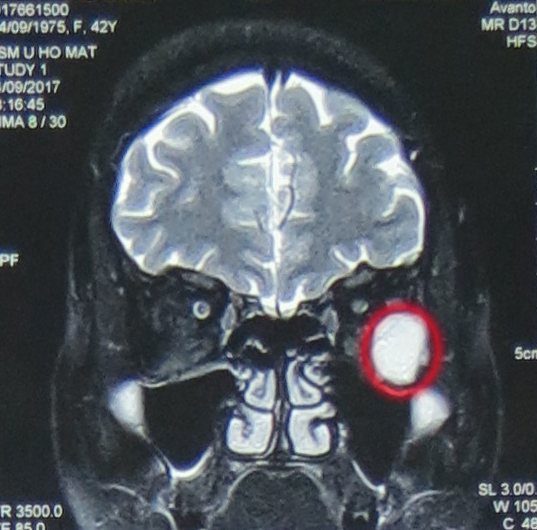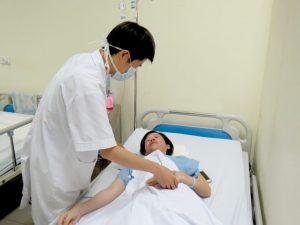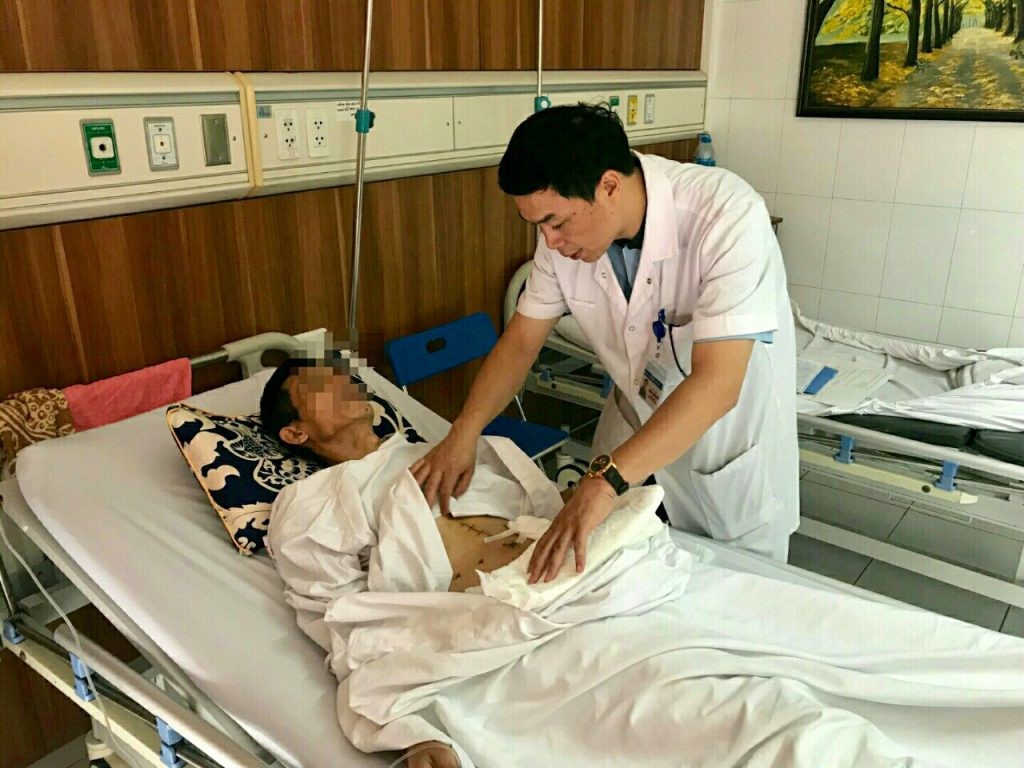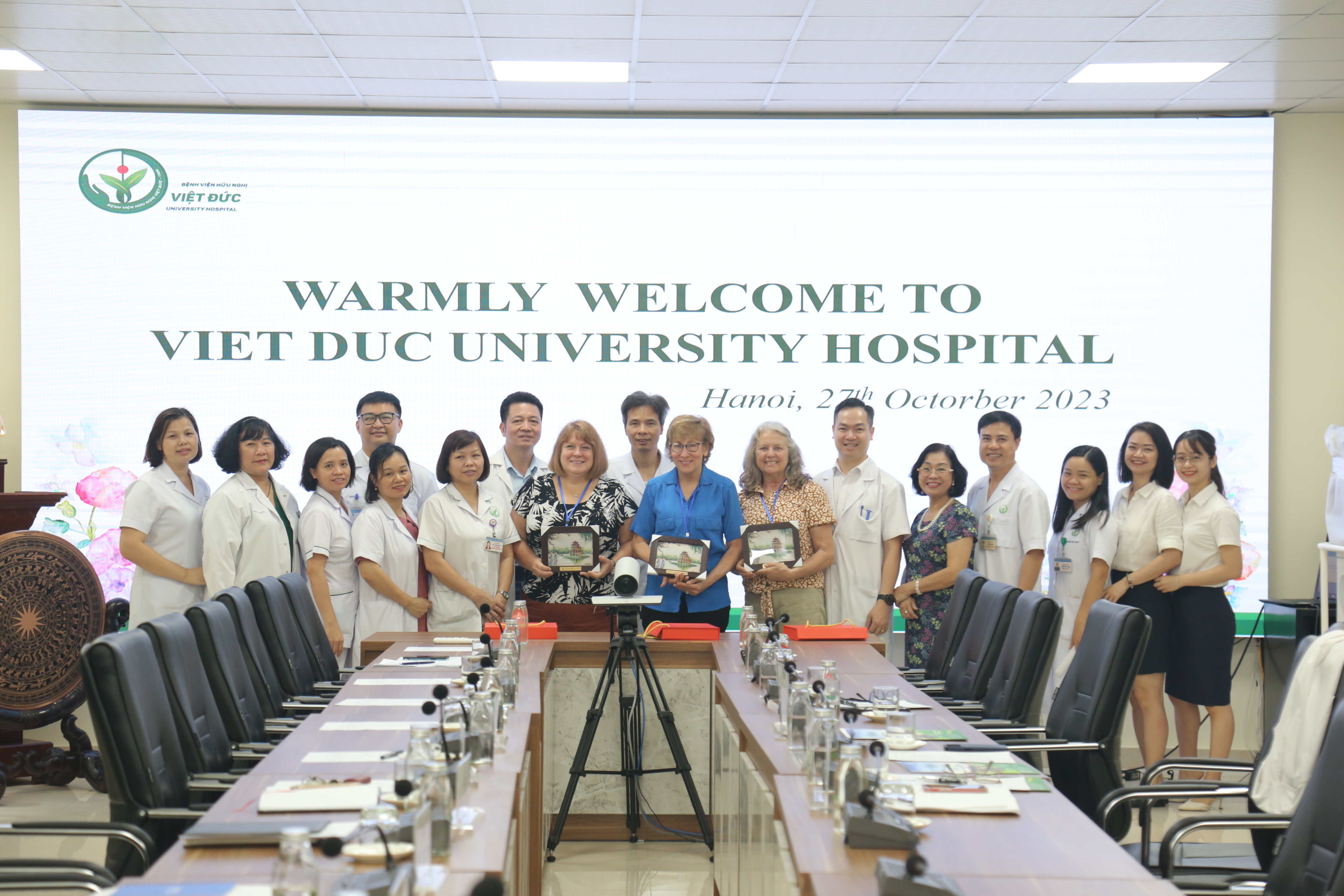The first endoscopic surgery to remove the orbital tumor by nasal cavity in Vietnam
27/11/2017 11:19
On November 15th, the first time a female patient underwent endoscopic surgery per nasal cavity by the doctor of the department of Neurosurgery I of Viet Duc Hospital (Vietnam Germany Friendship Hospital). This is the first technique applied successfully in Vietnam.
About 5 months ago, Ms. NTMT (42) detected herself in the left eye swollen with pain, tears and amblyopia ( poor vision) . Glocom surgery has performed however no remission was , and then Ms.T was introduced to Viet Duc Hospital for further management. The diagnosis of orbital tumor sized 21x17x23mm was made. This masse pushed on the extraocular muscles, eyes as well as on nerve vision in making protruding eyeball left of the first degree, the doctors of department of Neurosurgey I checked over the patient with the above diagnosis and decided to remove endoscopic surgery the tumor by nasal cavity.

Diagnosed of orbital tumor sized 21x17x23mm, Ms.NTMT has operated on to remove the tumor by nasal cavity
For removal endoscopic surgery the orbital tumor by nasal cavity , with assistance of Prof. JanakiramTrichy comes from Royal Pearl Hospita we have performed successfully and the entire tumor removed. Only 5 hours after surgery, the patient has recovered completely, very conscious, and good communication. Hopefully there will be more forthcoming patients should be able to benefit this advanced technology. ” Ass. Prof.. Dong Van System – Vice Director of Hospital also Director of the Center for Neurological Surgery, who has directly performed this operation , said.

5 hours after surgery, the patient has recovered completely, very conscious, and good communication
In joying the result, Ms T said: “Before the surgery, I was so worried if I had to open the skull should make be very painful and long recovery time. After consulting by the doctors here, and was operated by nasal endoscopic, I am much more confortable.
Previously, patients suffered from orbital tumor should undergo the surgery to open the skull (forehead or keyhole) with large incision, prolonged operation time, a very high risk of complications. By applying endoscopic surgery via natural cavities could help to make surgeries more gently, no pain, no scarring, less risk of infection, postoperative complications, shorter hospital stays, saving the cost of treatment.
Ass. Prof. Nguyen DucChinh PhD. MD translated













